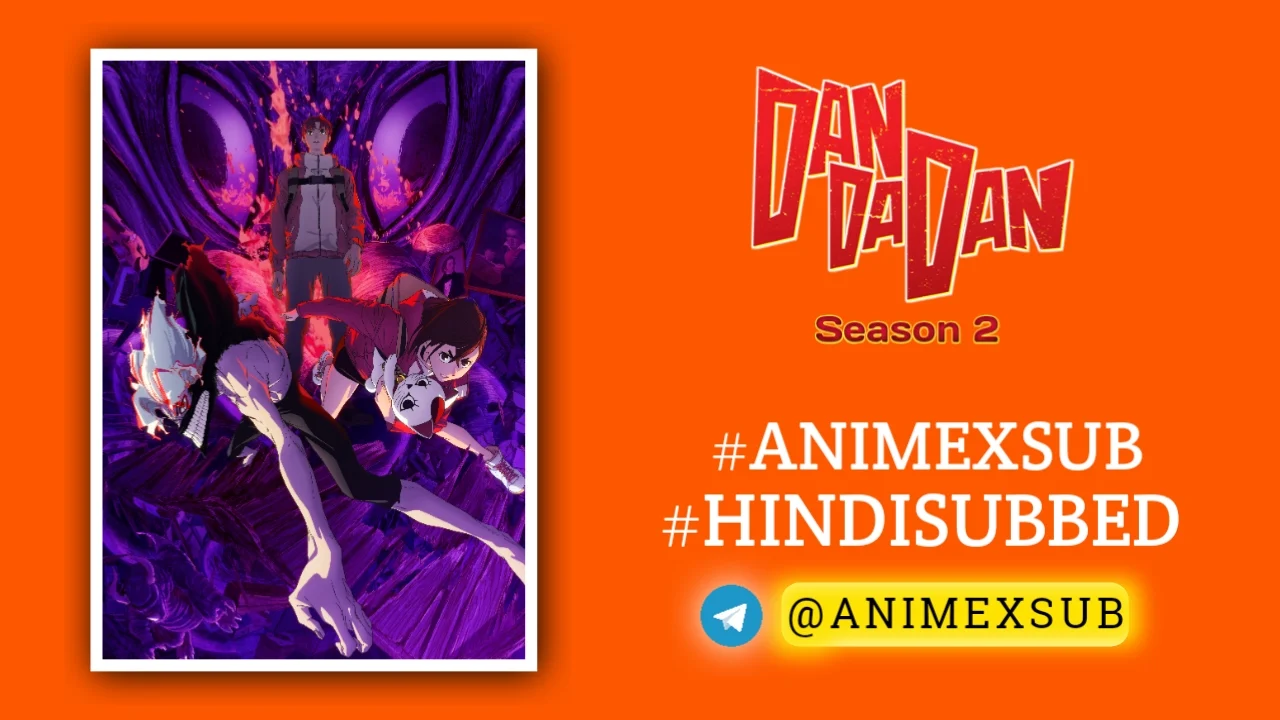
Baccano! Season 1 Hindi Subbed [13/13] + [3/3] OVA {Complete}

Baccano!
Baccano!Synopsis
During the early 1930s in Chicago, the transcontinental train, Flying Pussyfoot, is starting its legendary journey that will leave a trail of blood all over the country. At the same time in New York, the ambitious scientist Szilard and his unwilling aide Ennis, are looking for missing bottles of the immortality elixir. In addition, a war between the mafia groups is getting worse. On board the Advena Avis, in 1711, alchemists are about to learn the price of immortality. Based on the award winning light novels of the same name, this anime adaptation follows several events that initially seem unrelated, both in time and place, but are part of a much bigger story—one of alchemy, survival and immortality. Merging these events together are the kindhearted would-be thieves, Isaac and Miria, connecting various people, all of them with their own hidden ambitions and agendas, and creating lifelong bonds and consequences for everyone involved. (Source: MAL Rewrite)
Watch Trailer
Characters
Baccano! Season 1: A Masterclass in Chaotic Storytelling
Baccano! (2007, Brain’s Base, 16 episodes) is a narrative whirlwind that defies conventional anime storytelling, weaving a tapestry of crime, supernatural intrigue, and human complexity set against a vividly realized Prohibition-era backdrop. Adapted from Ryohgo Narita’s light novel series, this anime is a puzzle box of non-linear timelines, sprawling casts, and genre-blending audacity that demands active engagement and rewards repeat viewings. Here’s why Baccano! Season 1 stands as a singular achievement in anime, offering a depth and dynamism rarely matched.
A Non-Linear Narrative That Redefines Cohesion
Baccano!—Italian for “ruckus”—lives up to its name with a storytelling approach that feels like a high-stakes card shuffle. The plot spans multiple decades, primarily the early 1930s, but jumps between 1711, 1930, 1931, and 1932, following a sprawling ensemble of gangsters, thieves, alchemists, and immortals. The central thread involves the infamous Flying Pussyfoot train, a transcontinental journey turned blood-soaked battleground, alongside events like mafia turf wars and an alchemical quest for eternal life. Rather than a single protagonist, the show treats its ensemble as a collective lead, with each character’s arc interlocking to form a larger mosaic.
This non-linear structure, akin to Rashomon or Pulp Fiction, initially overwhelms with its rapid shifts in time and perspective. Yet, it’s precisely this chaos that makes Baccano! compelling. The narrative never spoon-feeds; it trusts viewers to piece together the connections between seemingly disparate events—like how a 1711 alchemical ritual ties to a 1930s train heist. By the finale, the scattered threads converge into a satisfying whole, revealing a story that’s as much about the journey as the destination. Episode 16’s refusal to provide a traditional ending, instead declaring “the story has no ending,” is a bold thematic choice that underscores the cyclical nature of human ambition and violence.
A Vibrant Cast of Unforgettable Characters
With over a dozen key players, Baccano! risks character overload, but each figure is so distinct that confusion fades as familiarity grows. The ensemble includes the eccentric thieves Isaac and Miria, whose comedic antics mask surprising depth; the psychopathic hitman Ladd Russo, whose gleeful violence is both chilling and charismatic; and the soft-spoken Jacuzzi Splot, a gangster with a heart of gold leading a ragtag crew. Even minor characters, like the demonic alchemist Szilard Quates or the mysterious Rail Tracer, leave lasting impressions due to their unique motivations and quirks.
What sets these characters apart is their moral ambiguity. There’s no clear hero or villain—each operates in a gray zone, driven by personal codes, loyalties, or obsessions. Isaac and Miria, for instance, are lovable idiots whose Robin Hood-esque schemes inadvertently influence major plot points, while the immortal Firo Prochainezo grapples with the existential weight of eternity. This depth ensures every character feels integral, avoiding the trap of disposable side players. The show’s ability to make you care about a sprawling cast in just 16 episodes is a testament to its sharp writing and pacing.
A Genre Mash-Up Done Right
Baccano! blends Prohibition-era gangster drama with supernatural horror, dark comedy, and adventure, creating a tone that’s both frenetic and cohesive. The 1930s setting, with its speakeasies, tommy guns, and fedoras, is meticulously crafted, evoking the gritty glamour of classic mobster films. The supernatural element—immortality granted through an alchemical elixir—adds a layer of existential dread, as characters confront the cost of living forever. This fusion never feels forced; the show balances bloody shootouts with slapstick humor and philosophical musings, ensuring no single genre overshadows the others.
The Flying Pussyfoot arc, where multiple factions converge on a doomed train, exemplifies this blend. It’s a microcosm of the series’ strengths: high-octane action, intricate plotting, and character-driven drama. The supernatural twists, like the Rail Tracer’s mythic terror, elevate the stakes without breaking the grounded crime narrative. This alchemy of genres makes Baccano! feel fresh, even decades after its release.
Technical Brilliance: Animation, Sound, and Voice
Brain’s Base delivers tight, vibrant animation that captures the era’s aesthetic—think smoky jazz clubs and blood-splattered train cars. The action sequences are fluid and visceral, with choreography that feels purposeful rather than gratuitous. The show’s violence is unflinching but never exploitative, used to underscore the stakes of its lawless world.
The soundtrack, led by Makoto Yoshimori, is a standout. The opening theme, “Guns & Roses” by Paradise Lunch, is a jazzy, brass-heavy banger that sets the tone with infectious energy. The score itself, blending swing, jazz, and orchestral flourishes, mirrors the show’s chaotic rhythm while grounding its period setting. Funimation’s English dub is widely praised as one of the best, with voice actors like J. Michael Tatum (Isaac) and Caitlin Glass (Miria) delivering performances that match the Japanese cast’s intensity. Every line, whether witty banter or menacing threat, lands with precision.
Why It Stands Out
Baccano! avoids anime clichés—no high school settings, no fan service, no predictable tropes. Its 1930s backdrop is a rarity in the medium, and its execution feels authentic, from the slang-filled dialogue to the period costumes. The non-linear storytelling and lack of a traditional protagonist make it a bold departure from formulaic narratives, demanding active viewer participation. While the initial complexity might deter some, it rewards patience with a story that’s as emotionally resonant as it is intellectually stimulating.
The series’ only flaw is its learning curve. The rapid introduction of characters and timelines can feel disorienting, but this chaos is intentional, mirroring the “ruckus” of its title. By episode three, most viewers find their footing, and the rewatch value is immense as new connections emerge.
A Timeless Ruckus
Baccano! Season 1 is a triumph of ambition and execution, a 16-episode sprint that feels both epic and intimate. Its non-linear narrative, unforgettable characters, and genre-blending bravado create an experience that’s as thrilling today as it was in 2007. For those craving a story that challenges, entertains, and lingers, Baccano! is a must-watch. It’s not just an anime—it’s a masterclass in storytelling that dares you to keep up.
Support Our Anime Community!
Love watching the latest anime? Help us keep uploading new episodes by join telegram channel ❤️
Join Now!





























